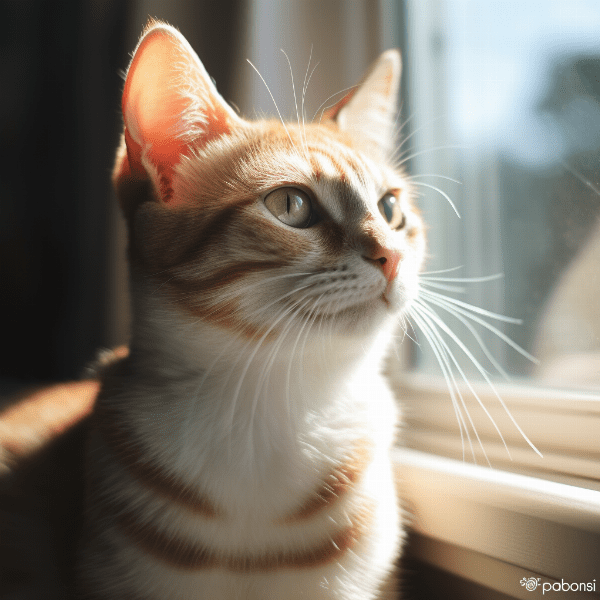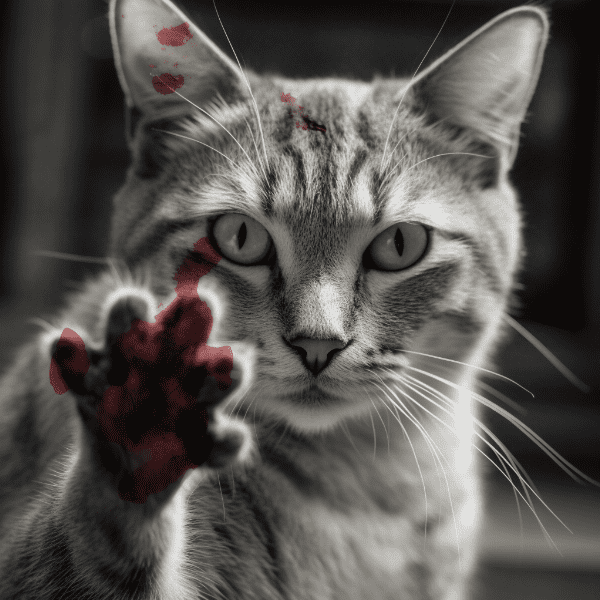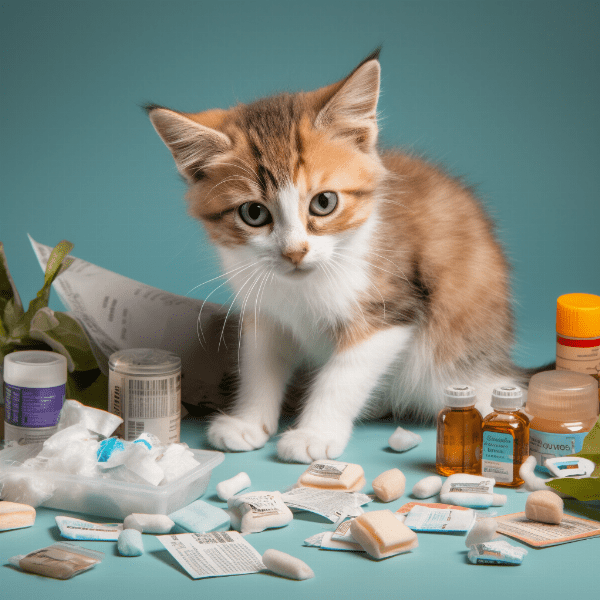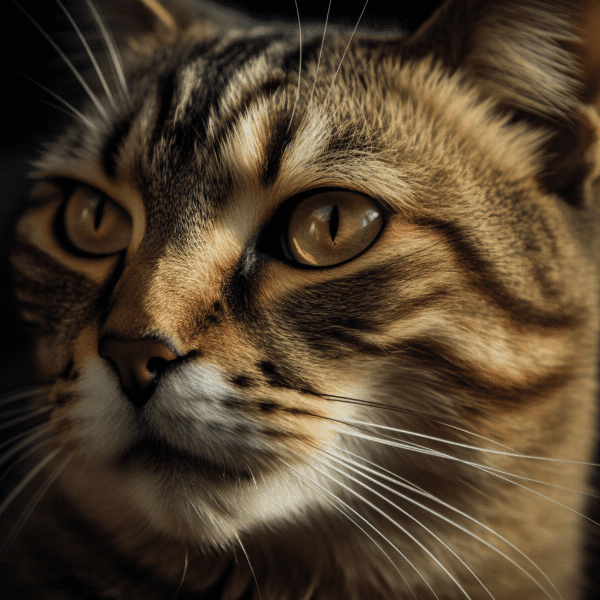Table of Contents
- Understanding Kitten Eye Infection: Causes and Symptoms
- Diagnosing Kitten Eye Infection: When to See a Vet
- Preventing Kitten Eye Infection: Tips for Keeping Your Kitten Healthy
- Treating Kitten Eye Infection: Home Remedies and Medications
- Caring for Your Kitten During and After Treatment
- Potential Complications of Kitten Eye Infection: What to Watch For
- When to Seek Further Treatment: Recurring or Chronic Infections
- Helping Your Kitten Recover: Tips for a Smooth Healing Process
- Maintaining Good Eye Health for Your Kitten: Long-Term Prevention Strategies
- Conclusion: Keeping Your Kitten’s Eyes Bright and Healthy.
Understanding Kitten Eye Infection: Causes and Symptoms
Kitten eye infection is a common problem that can cause discomfort and even lead to vision loss if left untreated. Understanding the causes and symptoms of this condition is essential for early detection and effective treatment.
Bacterial and Viral Causes
Kitten eye infections can be caused by a variety of factors, including bacteria and viruses. Bacterial infections can occur when harmful bacteria, such as staphylococcus or streptococcus, enter the eye. Viral infections, such as feline herpesvirus, can also cause eye infections in kittens.
Environmental Factors
Kitten eye infections can also be caused by environmental factors such as dust, pollen, and other irritants. These irritants can cause inflammation and lead to an infection.
Congenital Factors
Kittens can be born with eye infections due to congenital factors. In some cases, congenital defects in the eye can make the kitten more susceptible to infection. Additionally, kittens born to mothers with infections can also be at a higher risk of developing an eye infection.
Common Symptoms
The symptoms of kitten eye infection can vary depending on the severity and cause of the infection. Some common symptoms include:
- Redness and swelling around the eye
- Discharge from the eye
- Crusty or sticky eyelids
- Squinting or blinking excessively
- Cloudiness or opacity in the eye
- Changes in the color of the eye
Conclusion
In conclusion, kitten eye infections can be caused by a variety of factors, including bacterial and viral infections, environmental irritants, and congenital defects. Early detection and treatment are essential to prevent long-term damage to your kitten’s eye. If you notice any symptoms of eye infection, it’s important to seek veterinary care right away.
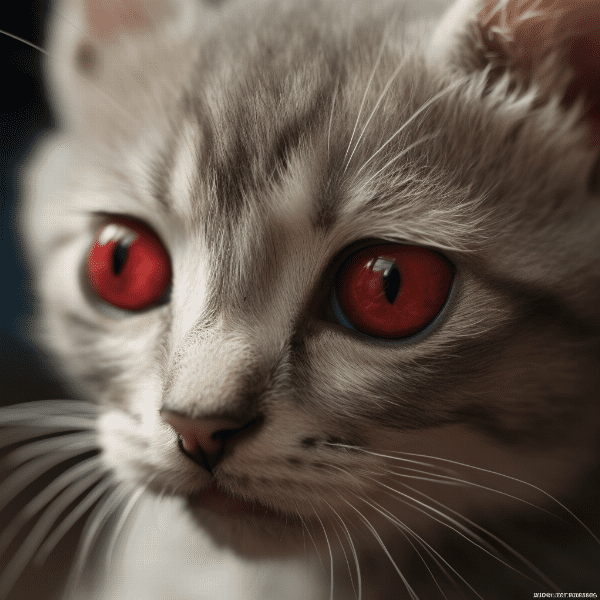
Diagnosing Kitten Eye Infection: When to See a Vet
If you suspect your kitten has an eye infection, it’s important to seek veterinary care as soon as possible. A prompt and accurate diagnosis is essential for effective treatment and to prevent further complications.
Clinical Examination
When you take your kitten to the vet, the first step in diagnosing an eye infection will be a clinical examination. The vet will look for signs of redness, swelling, discharge, and other symptoms. They may also ask you about your kitten’s medical history and any recent changes in their behavior or environment.
Diagnostic Tests
In some cases, the vet may need to perform additional diagnostic tests to determine the cause of the infection. These tests can include:
- Eye swabs: The vet may take a swab from the eye to test for bacteria or viruses.
- Tear tests: A tear test can determine if your kitten has dry eye, which can make them more susceptible to infection.
- Blood tests: Blood tests can help identify underlying conditions that may be contributing to the infection.
Follow-Up Care
After treatment, it’s important to follow up with your vet to monitor your kitten’s progress and ensure the infection has been fully treated. They may recommend additional appointments or medications to ensure your kitten’s eye stays healthy.
Conclusion
In conclusion, if you suspect your kitten has an eye infection, it’s important to seek veterinary care right away. A prompt and accurate diagnosis is essential for effective treatment and to prevent further complications. By working with your vet and following their recommended treatment plan, you can help your kitten recover and maintain good eye health.
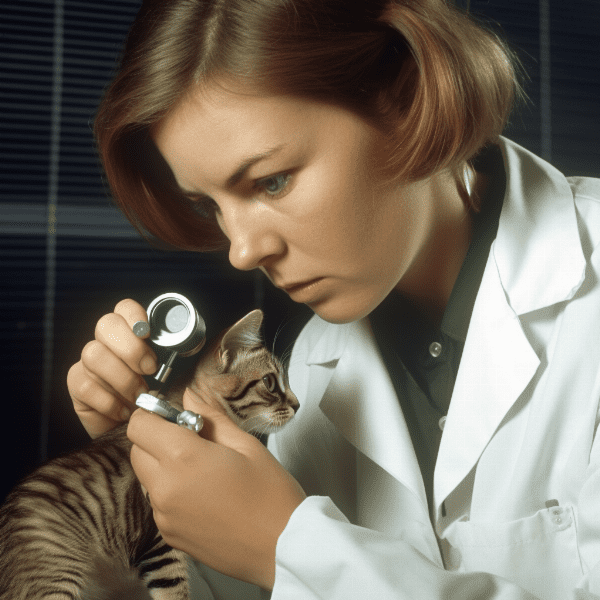
Preventing Kitten Eye Infection: Tips for Keeping Your Kitten Healthy
Preventing kitten eye infections is essential for maintaining your kitten’s overall health and well-being. By taking a few simple steps, you can help keep your kitten’s eyes healthy and free from infection.
Conclusion
In conclusion, preventing kitten eye infections is essential for maintaining your kitten’s health and well-being. By practicing good hygiene, vaccinations, nutrition, avoiding irritants, and regular check-ups with your vet, you can help keep your kitten’s eyes healthy and free from infection. If you notice any symptoms of an eye infection, it’s important to seek veterinary care right away.
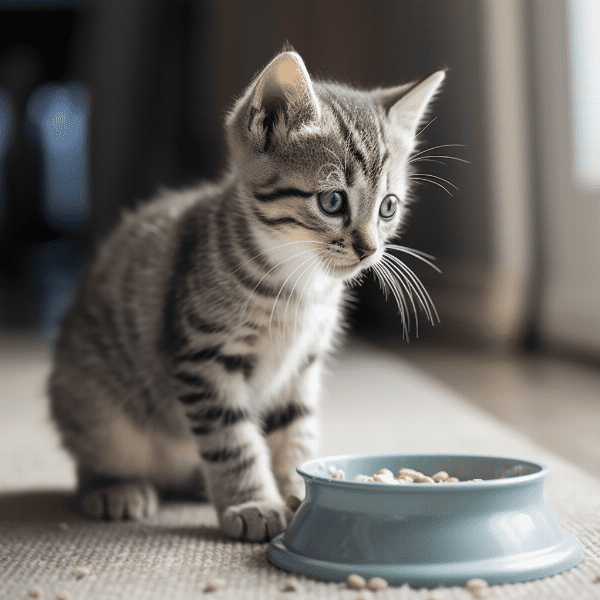
Treating Kitten Eye Infection: Home Remedies and Medications
Treating kitten eye infections can involve a combination of home remedies and medications, depending on the severity and cause of the infection. Here are some common treatment options for kitten eye infections.
Home Remedies
Some mild cases of kitten eye infections can be treated at home with simple remedies. These include:
- Warm compresses: Gently apply a warm compress to the affected eye to help reduce swelling and promote healing.
- Saline solution: Rinse the eye with a saline solution to help flush out any debris or irritants that may be causing the infection.
- Chamomile tea: Brew chamomile tea, let it cool, and use it as a gentle eye rinse to soothe and reduce inflammation.
Medications
In more severe cases of kitten eye infections, medications may be necessary to clear up the infection. These may include:
- Antibiotics: If the infection is bacterial, your vet may prescribe an antibiotic ointment or drops to be applied to the eye.
- Antiviral medication: For viral infections, antiviral medication may be prescribed to help manage the infection.
- Anti-inflammatory medication: In some cases, your vet may prescribe an anti-inflammatory medication to reduce inflammation and pain.
Surgery
In rare cases, surgery may be necessary to treat a kitten eye infection. This may involve draining any abscesses or removing any foreign objects that may be causing the infection.
Conclusion
In conclusion, treating kitten eye infections may involve a combination of home remedies and medications, depending on the severity and cause of the infection. Mild infections can often be treated at home with simple remedies, while more severe infections may require medication or even surgery. If you suspect your kitten has an eye infection, it’s important to seek veterinary care right away to determine the best course of treatment.
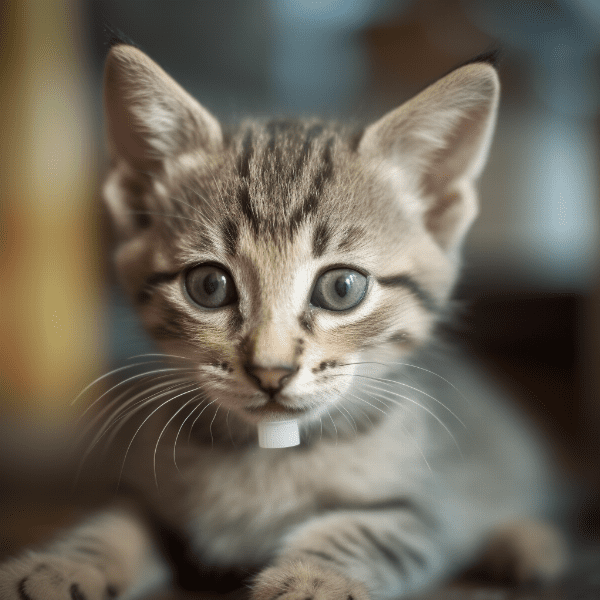
Caring for Your Kitten During and After Treatment
Taking care of your kitten during and after treatment for an eye infection is essential for a successful recovery. Here are some tips for caring for your kitten during and after treatment.
Administer Medications as Directed
If your vet has prescribed medications for your kitten, make sure to administer them as directed. This may include applying ointment or drops to the affected eye or giving your kitten oral medication. Follow the instructions carefully to ensure the medication is effective.
Keep Your Kitten Comfortable
Eye infections can be uncomfortable for kittens, so it’s important to keep them as comfortable as possible during treatment. This may include providing a warm, quiet space for your kitten to rest and reducing any sources of stress or anxiety.
Prevent Recurrence
To prevent recurrence of the infection, make sure to practice good hygiene and follow your vet’s recommendations for preventing future infections. This may include keeping your kitten’s eyes clean and avoiding potential irritants.
Conclusion
In conclusion, caring for your kitten during and after treatment for an eye infection is essential for a successful recovery. Follow your vet’s instructions, administer medications as directed, keep your kitten comfortable, monitor their progress, and take steps to prevent recurrence. By working closely with your vet and providing the best possible care for your kitten, you can help them recover and maintain good eye health.
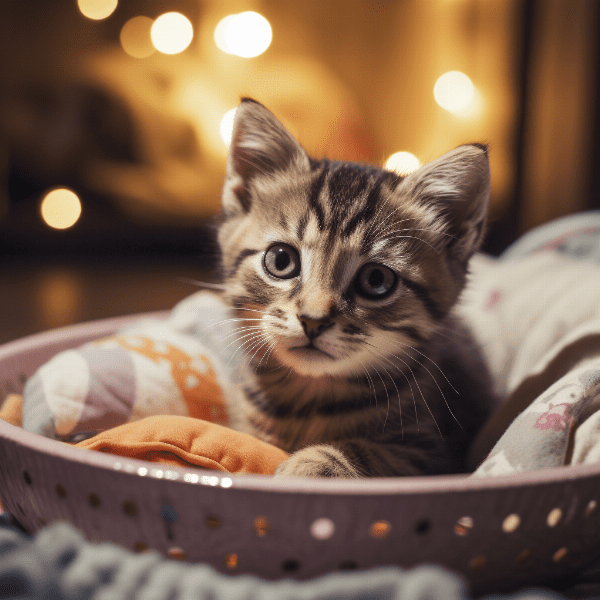
Potential Complications of Kitten Eye Infection: What to Watch For
Kitten eye infections can lead to a variety of complications if left untreated or if the infection is severe. Here are some potential complications to watch for and what to do if you notice them.
Corneal Ulcers
Corneal ulcers can occur as a result of a severe eye infection. These are open sores on the surface of the eye that can cause pain and discomfort for your kitten. Signs of corneal ulcers include excessive tearing, squinting, and redness around the eye. If you notice these symptoms, it’s important to seek veterinary care right away.
Blindness
In severe cases, kitten eye infections can lead to blindness. This can occur if the infection spreads to the retina or if the infection is left untreated for an extended period of time. Signs of blindness include your kitten bumping into objects, disorientation, and changes in behavior. If you suspect your kitten may be blind, seek veterinary care immediately.
Chronic Infections
Some kittens may be more susceptible to chronic eye infections, especially if they have underlying health conditions or if the infection is not fully treated. Chronic infections can lead to long-term damage to the eye and may require ongoing treatment and monitoring.
Conclusion
In conclusion, kitten eye infections can lead to a variety of complications if left untreated or if the infection is severe. Corneal ulcers, blindness, and chronic infections are potential complications to watch for. If you notice any signs of complications, seek veterinary care right away. By working closely with your vet and providing the best possible care for your kitten, you can help them recover and maintain good eye health.
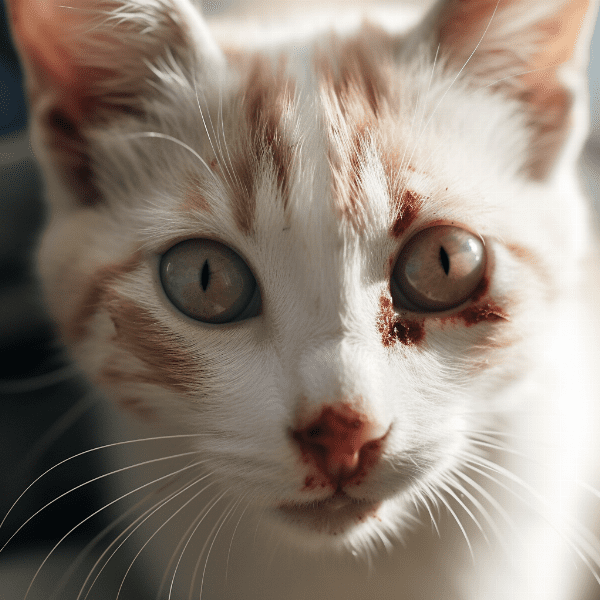
When to Seek Further Treatment: Recurring or Chronic Infections
In some cases, kitten eye infections may recur or become chronic, despite treatment. If your kitten experiences recurring or chronic infections, it’s important to seek further treatment to prevent long-term damage to the eye.
Causes of Recurring or Chronic Infections
Recurring or chronic infections can be caused by a variety of factors, including underlying health conditions, incomplete treatment of the initial infection, or exposure to irritants that continue to cause inflammation.
Symptoms of Recurring or Chronic Infections
Symptoms of recurring or chronic infections may include redness, swelling, discharge, or changes in the color of the eye. Your kitten may also exhibit signs of discomfort, such as excessive tearing, squinting, or rubbing at the affected eye.
Treatment Options
If your kitten experiences recurring or chronic infections, your vet may recommend additional diagnostic testing to determine the underlying cause of the infection. Treatment options may include a combination of medications, surgery, or other therapies to manage the infection and prevent recurrence.
Prevention
To prevent recurring or chronic infections, it’s important to follow your vet’s recommendations for preventing future infections. This may include practicing good hygiene, avoiding potential irritants, and keeping your kitten’s eyes clean.
Conclusion
In conclusion, recurring or chronic kitten eye infections can be a sign of underlying health conditions or incomplete treatment of the initial infection. If your kitten experiences recurring or chronic infections, seek further treatment from your vet to prevent long-term damage to the eye. By following your vet’s recommendations for treatment and prevention, you can help your kitten recover and maintain good eye health.
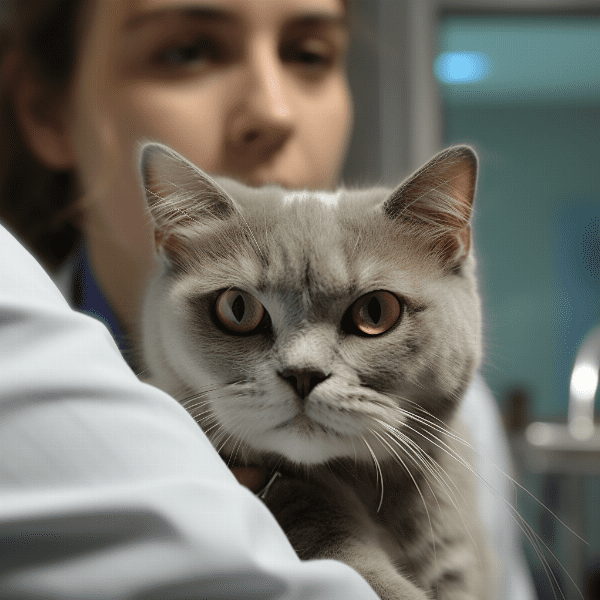
Helping Your Kitten Recover: Tips for a Smooth Healing Process
Helping your kitten recover from an eye infection can be a challenging process, but there are several steps you can take to ensure a smooth healing process. Here are some tips for helping your kitten recover from an eye infection.
Provide a Comfortable Environment
During the healing process, it’s important to provide a warm, comfortable environment for your kitten to rest and recover. Avoid exposing them to potential irritants or sources of stress, such as loud noises or other pets.
Monitor Your Kitten’s Progress
Keep a close eye on your kitten’s progress during the healing process. Monitor their symptoms and report any changes to your vet. Follow-up appointments may be necessary to ensure the infection has been fully treated.
Play and Exercise
Once your kitten has started to recover, encourage them to engage in gentle play and exercise to help strengthen their immune system and promote healing. However, avoid activities that may cause strain or discomfort to their eye.
Conclusion
In conclusion, helping your kitten recover from an eye infection can be a challenging process, but by following your vet’s instructions, providing a comfortable environment, monitoring your kitten’s progress, ensuring good nutrition, and promoting gentle play and exercise, you can help ensure a smooth healing process. If you notice any signs of complications or if you have concerns about your kitten’s recovery, don’t hesitate to contact your vet. By working closely with your vet and providing the best possible care for your kitten, you can help them recover and maintain good eye health.
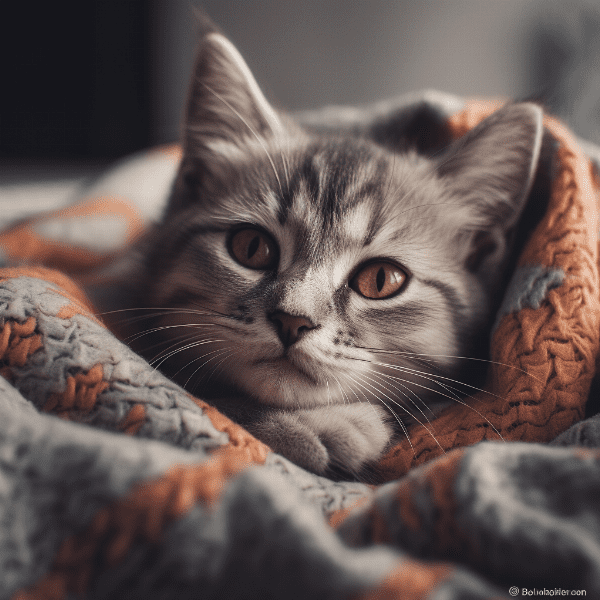
Maintaining Good Eye Health for Your Kitten: Long-Term Prevention Strategies
Preventing eye infections in kittens is essential for maintaining good eye health and overall well-being. Here are some long-term prevention strategies to help maintain good eye health for your kitten.
Vaccinations
Vaccinations can help prevent viral infections that can lead to eye infections, such as feline herpesvirus. Talk to your vet about the recommended vaccination schedule for your kitten.
Good Hygiene
Practicing good hygiene is essential for preventing eye infections in kittens. Make sure to keep your kitten’s eyes and surrounding area clean by gently wiping them with a clean, damp cloth. Avoid using harsh chemicals or perfumes around your kitten’s eyes, as these can irritate the delicate tissue.
Conclusion
In conclusion, maintaining good eye health for your kitten is essential for their overall well-being. By practicing regular check-ups with your vet, vaccinations, good hygiene, good nutrition, and avoiding potential irritants, you can help prevent eye infections and promote good eye health for your kitten. If you notice any symptoms of an eye infection, it’s important to seek veterinary care right away. By working closely with your vet and providing the best possible care for your kitten, you can help them maintain good eye health throughout their life.
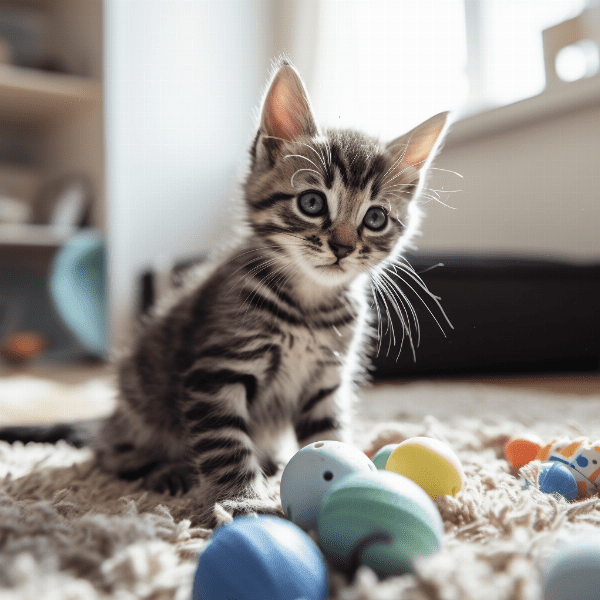
Conclusion: Keeping Your Kitten’s Eyes Bright and Healthy.
Keeping your kitten’s eyes healthy is essential for their overall health and well-being. By understanding the causes and symptoms of kitten eye infections, seeking prompt veterinary care, and following prevention and treatment strategies, you can help your kitten maintain good eye health throughout their life.
Regular check-ups with your vet, vaccinations, good hygiene, good nutrition, and avoiding potential irritants are all important long-term prevention strategies. If your kitten does experience an eye infection, following your vet’s instructions for treatment and care, monitoring their progress, and providing a comfortable environment can help ensure a smooth healing process.
By working closely with your vet and providing the best possible care for your kitten, you can help them recover from eye infections and maintain good eye health. Remember, prevention is key when it comes to kitten eye infections. By taking proactive steps to prevent infections and address them promptly if they do occur, you can help your kitten enjoy bright, healthy eyes for years to come.
